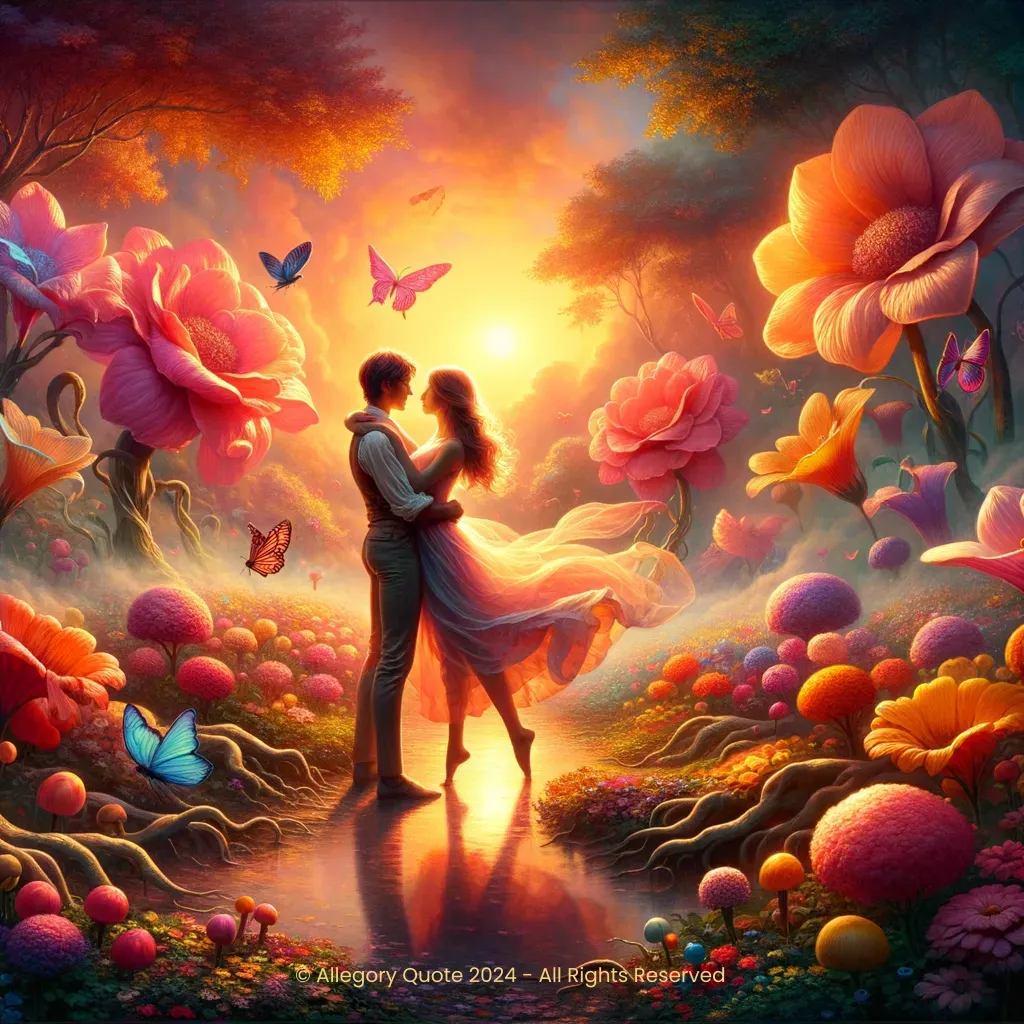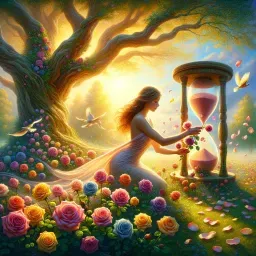”Love is blind, and lovers cannot see
the pretty follies that themselves commit“

0
0
0
0
- Meaning
- This phrase captures the idea that love can cloud one’s judgment, causing people to be blind to the faults and mistakes they make in the throes of passion. When people are in love, they often idealize their partner and overlook obvious flaws or foolish actions that they would normally recognize. This blind spot allows lovers to engage in behaviors they might otherwise avoid, wrapped up in their own romanticized world.
- Allegory
- The lovers' joyful expressions and idyllic surroundings represent the beauty and euphoria that love can bring. The veil over their eyes symbolizes love’s ability to obscure vision, aligning with the phrase "Love is blind." The whimsical mishaps around them, like tripping over tree roots or spilling nectar, signify the "pretty follies" that lovers commit. The playful and positive elements suggest that while love can lead to foolish behavior, it remains an enchanting and profoundly human experience.
- Applicability
- In personal life, this phrase serves as a reminder to maintain perspective while in romantic relationships. It encourages individuals to remain self-aware and seek a balanced view of their partners and their behaviors, despite the overwhelming emotions that love can generate. Understanding this can help avoid potential heartbreak or personal mistakes that might be regretted later.
- Impact
- This phrase has had a lasting impact on literature and culture, embodying a timeless truth about the nature of love and its effects on human behavior. It is frequently cited in discussions about romantic relationships and is often referenced in both academic settings and popular culture, demonstrating Shakespeare's enduring influence on our understanding of human emotions.
- Historical Context
- The line is from the late 16th century, a period that saw the flourishing of the English Renaissance and dramatic arts. This historical context underscores Shakespeare's exploration of human nature and emotions, plumbing the depths of love, folly, and the consequences of our actions.
- Criticisms
- Some may argue that the phrase overly romanticizes or even cynically views love as inherently delusional or foolish. Critics might claim that while love can indeed lead to irrational behavior, it also can bring out some of the best qualities in people, leading to growth and positive change. Thus, the interpretation of love as solely blinding might be seen as one-sided.
- Variations
- Variations of this phrase have appeared throughout literature and different cultures. For instance, in modern terms, people talk about "rose-tinted glasses" when describing love’s tendency to obscure reality. Different cultures might use their metaphors or expressions to signify how love affects perception and behavior, highlighting a universal human experience.
-

You never know how strong you are, until being strong is your only choice.
-

Do unto others as you would have them do unto you.
-

Love is not love which alters when it alteration finds, or bends with the remover to remove.
-

Beyond the sphere that widest orbit swings, passes the sigh that leaves my heart below.
-

The only limit to our realization of tomorrow will be our doubts of today.
-

Every tongue should confess that Jesus Christ is Lord, to the glory of God the Father.
-

Journeys end in lovers meeting.
-

Gather ye rosebuds while ye may.
-

I can never consent to being dictated to.
-

Heavy is the head that wears the crown.
-

They stumble that run fast.
No Comments